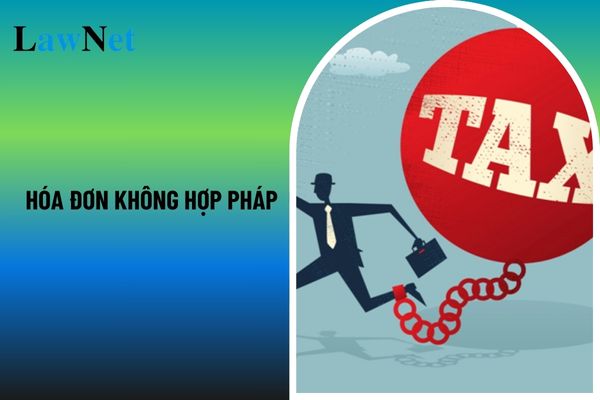Is the use of illegal invoices for purchases considered tax evasion in Vietnam?
Is the use of illegal invoices for purchases considered tax evasion in Vietnam?
Based on Article 143 of the Law on Tax Administration 2019 which provides regulations on acts of tax evasion as follows:
Acts of Tax Evasion
...
- Failure to record in the accounting books the revenues related to determining the tax payable amount.
- Failure to issue invoices when selling goods or services as prescribed by law or recording on the sales invoice a value lower than the actual payment value of the goods or services sold.
4. Use of illegal invoices, records, unlawful use of invoices to account for goods, input materials in activities giving rise to tax obligations to reduce the payable tax amount or increase the tax-exempt amount, tax-reduced amount, deducted tax amount, tax-refunded amount, or tax-free amount.
- Use of records that do not accurately reflect the nature of the transaction or the actual transaction value to miscalculate the tax payable amount, tax-exempt amount, tax-reduced amount, tax-refunded amount, or tax-free amount.
- Incorrect declaration of exported or imported goods without supplementary declaration for tax files after the goods have cleared customs.
- Deliberately failing to declare or incorrectly declaring tax on exported or imported goods.
...
Thus, according to the above regulations, the use of illegal invoices to account for goods is an act of tax evasion.

Is the use of illegal invoices for purchases considered tax evasion in Vietnam? (Image from the Internet)
Which invoices and records are considered illegal in Vietnam?
According to Clause 1, Article 4 of Decree 125/2020/ND-CP, there are specific regulations on the use of invoices and records in the following cases regarded as the use of illegal invoices and records:
- Fake invoices and records;
- Invoices and records that are not yet valid or have expired;
- Invoices suspended from use through coercive measures by stopping the use of invoices, except where permitted by notification from the tax authority;
- Electronic invoices not registered for use with the tax authority;
- Electronic invoices without the tax authority's code in cases required to use coded electronic invoices;
- Invoices for goods and services, where the invoice date is after the tax authority flags the seller as non-operational at the registered business address;
- Invoices, records for goods and services, where the invoice, record date is before the determination that the issuer is non-operational at the registered business address, or before notice from the tax authority related to the issuer’s non-operation at the registered business address, but conclusions from the tax authority, police, or other competent agencies state they are illegal invoices or records.
What is the minimum penalty for using illegal invoices in Vietnam?
According to Article 28 of Decree 125/2020/ND-CP related to the administrative penalties for the use of illegal invoices for tax declaration, penalties are stipulated as follows:
Penalties for the Use of Illegal Invoices and Unlawful Use of Invoices
- A monetary penalty from 20,000,000 VND to 50,000,000 VND for the use of illegal invoices, unlawful use of invoices as prescribed in Article 4 of this Decree, except as specified at point đ, Clause 1, Article 16 and point d, Clause 1, Article 17 of this Decree.
- Remedy: Forcing the cancellation of used invoices.
Thus, according to the above regulations, the minimum penalty for using illegal invoices is 20,000,000 VND.
What are the remedial measures for administrative violations related to invoices in Vietnam?
Based on Clause 3, Article 7 of Decree 125/2020/ND-CP, specific remedial measures are laid out as follows:
- Requiring full payment of any tax deficiencies, excessive tax exemption, reduction, or refund, tax evasion amounts, or late tax payment into the state budget.
- Forcing the adjustment of loss figures, deductible input value-added tax for carryforward to subsequent periods.
- Requiring submission of amended taxpayer registration details; re-filing and submitting supplementary records in the tax dossier; filing tax declarations, annexes along with the tax declaration dossier; providing information.
- Mandating the execution of invoice issuance procedures.
- Requiring the issuance of invoices in compliance with regulations.
- Forcing the cancellation or destruction of invoices and printed products.
- Mandating the creation and submission of notices or reports related to invoices.
- Forcing the transfer of electronic invoice data.
- Mandating the payment of illicit profits gained from administrative violations.

